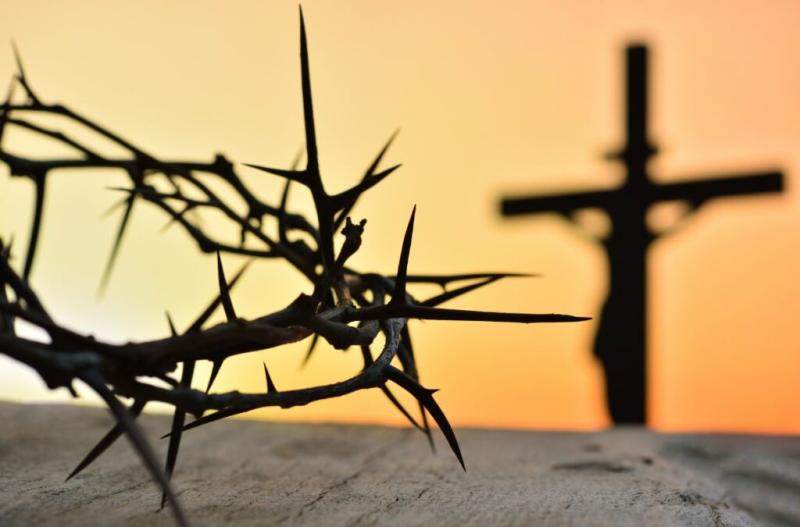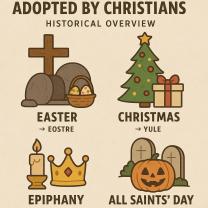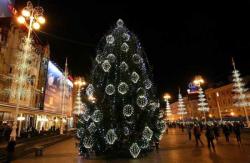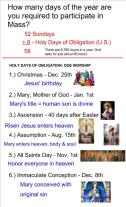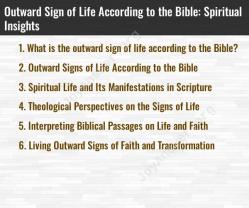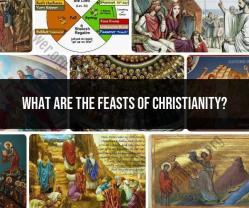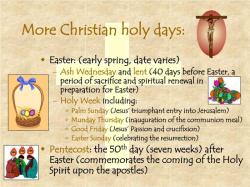How do Roman Catholics celebrate God?
Roman Catholics celebrate God through a variety of religious practices, rituals, and festivities that are deeply rooted in their faith tradition. The Catholic Church has a rich liturgical calendar that includes various celebrations, feasts, and solemnities, providing opportunities for worship, reflection, and communal prayer. Here are some key ways in which Roman Catholics celebrate God:
The Holy Mass (Eucharist):
- The central and most important act of worship for Roman Catholics is the celebration of the Mass, also known as the Eucharist. During Mass, Catholics believe that the bread and wine become the body and blood of Christ through the process of transubstantiation. The Mass is celebrated regularly, with Sunday Mass being especially significant.
Liturgical Calendar:
- The liturgical calendar organizes the worship year, marking different seasons and feasts that commemorate various aspects of the Christian faith. Key seasons include Advent, Christmas, Lent, Holy Week, Easter, and Ordinary Time. Feasts celebrate events such as the Nativity, Epiphany, Resurrection, Pentecost, and the Assumption.
Sacraments:
- Roman Catholics participate in sacraments, which are sacred rites that convey God's grace. The seven sacraments include Baptism, Confirmation, Holy Eucharist, Reconciliation (Confession), Anointing of the Sick, Holy Orders, and Matrimony. Each sacrament is a special encounter with God and plays a crucial role in the life of a Catholic.
Liturgy of the Hours:
- The Liturgy of the Hours, also known as the Divine Office, is a form of daily prayer observed by clergy, religious, and some laypeople. It consists of a set of psalms, hymns, and readings that vary throughout the day, providing a structured rhythm of prayer.
Prayer and Devotions:
- Catholics engage in various forms of personal and communal prayer. Common prayers include the Our Father (Lord's Prayer), Hail Mary, Glory Be, and the Apostles' Creed. Devotions such as the Rosary, Stations of the Cross, and Adoration of the Blessed Sacrament are also integral to Catholic spirituality.
Feast Days of Saints:
- The Catholic Church commemorates the lives of saints throughout the liturgical calendar. Feast days are dedicated to particular saints, and Catholics may attend special Masses or participate in devotions related to the saint being honored.
Processions and Pilgrimages:
- Processions, such as the Corpus Christi procession, involve the public display of religious symbols and the Blessed Sacrament. Pilgrimages to holy sites, whether local or international, are also a way for Catholics to deepen their faith and connect with God in a special way.
Celebrations of the Blessed Virgin Mary:
- Catholics honor the Blessed Virgin Mary, the mother of Jesus, through various Marian feasts and devotions. May is often considered the month of Mary, and special prayers and processions take place in her honor.
Special Liturgical Rites:
- Throughout the liturgical year, special rites and liturgies are celebrated, such as the Easter Vigil, the Blessing of Palms on Palm Sunday, and the Blessing of Ashes on Ash Wednesday. These rites enhance the meaning of the seasons and feasts.
Solemnities and Celebrations:
- Certain solemnities, such as the Feast of Christ the King and the Feast of the Immaculate Conception, are celebrated with particular reverence and joy. These occasions offer opportunities for reflection on specific aspects of Catholic doctrine and theology.
Fasting and Abstinence:
- Catholics observe periods of fasting and abstinence, particularly during Lent, as a way of participating in the penitential aspects of the Christian journey. Fasting is often associated with prayer and almsgiving.
Participation in the Sacrament of Reconciliation:
- Catholics seek reconciliation through the Sacrament of Reconciliation (Confession) to confess sins, receive forgiveness, and experience God's mercy. This sacrament is often celebrated individually with a priest.
The celebration of God in the Roman Catholic tradition is multifaceted, involving a combination of communal worship, sacraments, prayer, devotion, and adherence to the liturgical calendar. These practices aim to deepen the spiritual life of individuals and the community while fostering a strong connection with God and the teachings of the Catholic faith.
How do Roman Catholics express their devotion and celebrate God in their daily lives?
Roman Catholics express their devotion and celebrate God in their daily lives through a variety of personal and communal practices. These practices are woven into the fabric of their lives, offering constant opportunities for connection and gratitude.
Here are some specific examples:
- Prayer: Prayer is a cornerstone of Catholic life. Catholics pray individually and communally throughout the day, using formal prayers like the Rosary or Hail Mary, or simply offering personal expressions of thanksgiving, petition, and adoration.
- Scripture reading: Regularly reading and reflecting on the Bible is encouraged as a way to deepen understanding of God's word and draw closer to Him.
- Attendance at Mass: Attending Mass, the central act of Catholic worship, is a weekly commitment for many Catholics. It allows them to celebrate the Eucharist, a sacrament considered the source and summit of the faith.
- Works of charity and service: Helping others is seen as a way to love God and serve others. Catholics often volunteer their time and resources to those in need, embodying their faith in action.
- Living a Christ-centered life: Striving to follow the teachings of Jesus Christ in everyday life is an essential aspect of Catholic devotion. This includes practicing Christian values like kindness, forgiveness, and compassion.
In addition to these daily practices, Catholics also participate in specific rituals and celebrations throughout the year. These include:
- Sacraments: The seven sacraments (Baptism, Confirmation, Eucharist, Reconciliation, Anointing of the Sick, Holy Orders, and Matrimony) are sacred rituals believed to be channels of God's grace. Receiving the sacraments at key moments in life signifies deepening commitment and connection to God.
- Devotional practices: Catholics engage in various devotional practices, such as saying the rosary, venerating saints and Mary, and participating in pilgrimages. These practices, while not required, offer additional ways to express love and devotion to God and seek His intercession.
Sacraments and prayers play a central role in the Catholic celebration of God by offering physical encounters with God's grace. The Eucharist, in particular, is believed to be the real presence of Jesus Christ, allowing Catholics to receive Him in body and blood. Prayers are seen as ways of communicating with God, expressing gratitude, seeking forgiveness, and interceding for others. Different types of prayers, such as petitions, thanksgiving, and adoration, offer avenues for various forms of connection with the divine.
Overall, Roman Catholics celebrate God through a tapestry of daily practices, communal rituals, and personal commitments. From heartfelt prayers and scripture reflection to acts of service and participation in sacraments, their faith finds expression in various ways, enriching their lives and deepening their connection with the divine.
